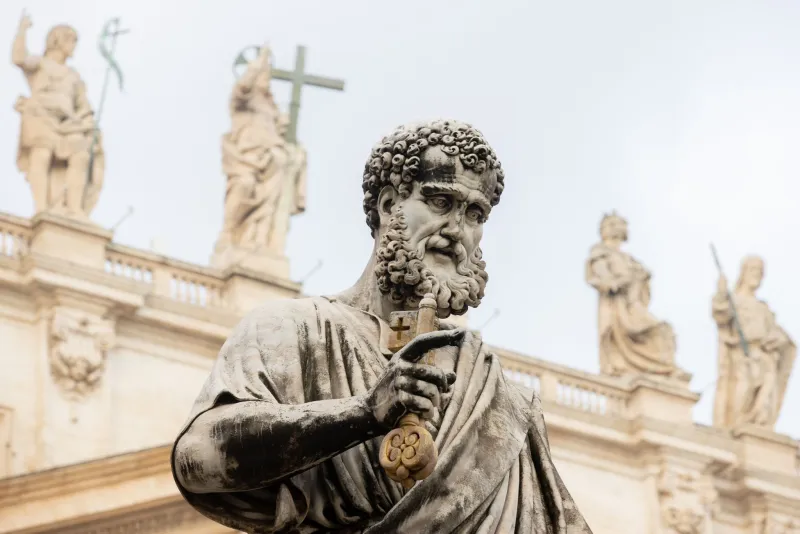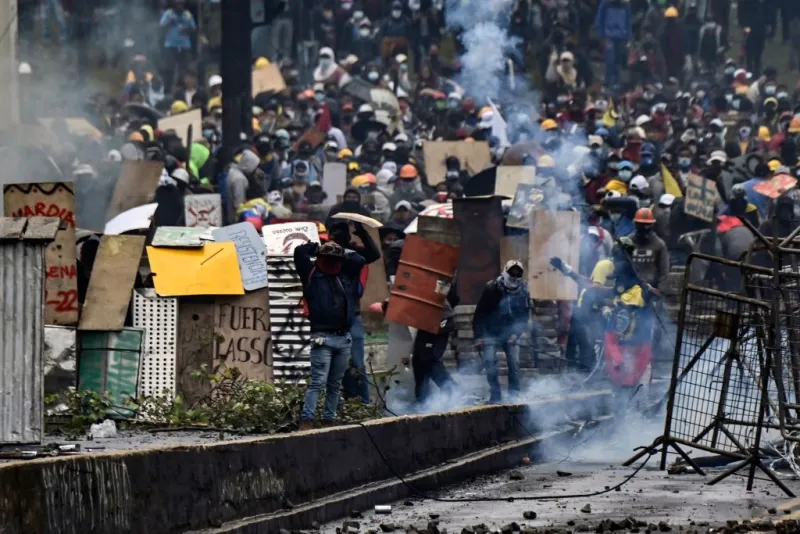
Vatican City, Nov 9, 2023 / 09:17 am (CNA).
Pope Francis has underlined that it is “everyone’s responsibility” to aid women who are victims of abuse and domestic violence by giving a “voice to our voiceless sisters.”
In a message to an Italian campaign to end violence against women published on Nov. 8, the pope urged the importance of educational action that “places the dignity of the person at the center.”
“It is our duty, everyone’s responsibility, to give voice to our voiceless sisters: women who are victims of abuse, exploitation, marginalization, and inappropriate pressure,” Pope Francis said.
“Let us not remain indifferent! It is necessary to act now, at all levels, with determination, urgency, and courage.”
According to the United Nations, nearly 1 in 3 women worldwide has been subjected to some form of either physical or sexual violence in their lifetime, a statistic that does not include sexual harassment. Afghanistan, India, Pakistan, and the Democratic Republic of Congo were found by a Reuters survey in 2018 to be among the most dangerous countries for women.
Italian government data released in 2022 showed that on average one woman is killed every three days in Italy, many of them by an act of violence from an intimate partner or ex-partner.
“How many women are overwhelmed by the burden and trauma of violence,” the pope said in his message. “How many are mistreated, abused, enslaved, victims of the tyranny of those who think they can control their bodies and lives, forced to surrender to the greed of men.”
The pope said that violence against women must be “eliminated from its roots” — namely prejudiced ideas that see people as “objects” that can be dominated, obscuring their human dignity.
“The Lord wants us free and in full dignity! Faced with the scourge of physical and psychological abuse of women, there is an urgent need to rediscover just and equitable relationship patterns based on respect and mutual recognition,” Pope Francis said.
The Vatican released the message two weeks after Pope Francis signed it on Oct. 27 — the same day that the Holy See Press Office announced that the pope had decided to lift the statute of limitations in the case of Father Marko Rupnik, a priest accused of serious abuses against women, after news that the priest had been returned to priestly ministry in Slovenia sparked outrage and disappointment from many Catholics and abuse victims over the handling of the clerical sex abuse allegations.
Pope Francis encouraged women’s shelters in Italy to continue raising awareness about violence against women. The pope’s message addressed a campaign by CADMI, which provides housing and legal support for women who have suffered from domestic violence, and D.i.Re, a network of women’s shelters and organizations in Italy.
“From the heart and flesh of a woman salvation came into the world; our degree of humanity is revealed by how we treat women, in all her dimensions,” the pope said.
If you value the news and views Catholic World Report provides, please consider donating to support our efforts. Your contribution will help us continue to make CWR available to all readers worldwide for free, without a subscription. Thank you for your generosity!
Click here for more information on donating to CWR. Click here to sign up for our newsletter.







These are cheap words. Corresponding deeds come years late, after heavy media coverage and global outrage.